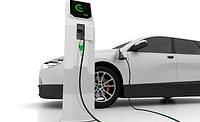“These awards will help ensure America leads the world in the development of advanced vehicle technologies that support cost-competitive, convenient, and comfortable fuel-efficient vehicles,” said Chu. “Investments in the next generation of vehicle technologies are laying the groundwork for a sustainable transportation sector in America that strengthens our economy and improves our economic competitiveness.”
The funding opportunity announcement addresses the development of key technologies that are required to achieve large-scale adoption of advanced vehicles such as plug-in electric hybrids (PHEVs) and electric vehicles (EVs). Although the first of a new generation of electric drive vehicles is now entering the market, advancements in batteries, power electronics, and lightweight materials are required to be fully competitive. In addition, extremely efficient vehicles using improved combustion technologies, fuels and waste heat recovery offer significant near-term improvements to conventional vehicles.
The department seeks applications from industry, laboratory and university teams to address the nation’s transportation challenges. The solicitation seeks to fill gaps in the existing program through the development of enabling technologies that will remove barriers and create new paradigms in vehicle design.
The funding opportunity announcement focuses on eight approaches to improving vehicle efficiency:
- Advanced fuels and lubricants. Improve today’s vehicle fuels and lubricants to enable optimal performance of advanced combustion engines.
- Light-weighting materials. Accelerate commercial availability of lighter weight vehicles using advanced materials like magnesium and carbon fiber to dramatically reduce vehicle weight.
- Multi-material lightweight material prototype. Design, build and test a lightweight vehicle that is 50% lighter than a baseline light-duty vehicle.
- Advanced cells and design technology for electric drive batteries. Develop high-energy or high-power electric vehicles that significantly exceed existing state-of-the-art technologies in terms of performance and/or cost.
- Advanced power electronics and electric motor technology. Develop the next generation of power inverters and electric motors to meet demanding performance targets while achieving significant reductions in cost.
- Thermoelectric and enabling engine technology. Improve the efficiency of thermoelectric devices to convert engine waste heat to electricity. Develop early-stage enabling engine technologies to improve fuel efficiency and reduce emissions.
- Fleet efficiency. Develop and demonstrate fuel efficient tire and driver feedback technologies that will positively affect efficiency of the fleet of passenger cars and commercial vehicles.
- Advanced vehicle testing and evaluation. Conduct laboratory and field evaluations of advanced technology vehicles and related infrastructure, while developing new or modified test procedures.
For additional details, visitwww.vehicles.energy.gov.

